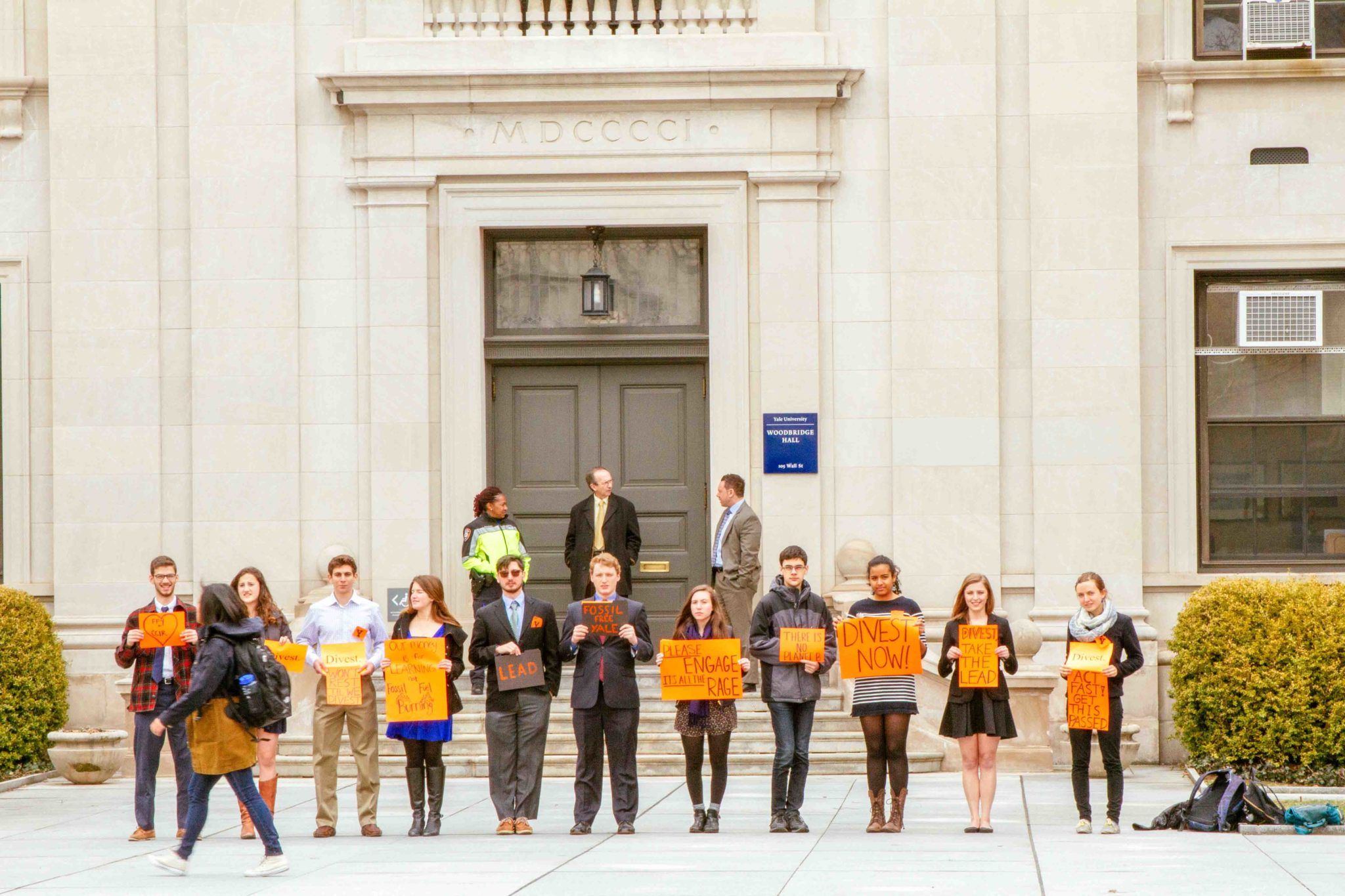
Yale Daily News
Kathryn Taylor, a member of Harvard’s 30-person Board of Overseers — the second highest governing body at Harvard — made public her request that the university divest from the fossil fuel industry in an op-ed for the Crimson last Wednesday.
Her column marked the first time any member of Harvard’s governance boards has publicly urged divestment, according to the Crimson report. By contrast, no Yale trustee has ever published a statement openly supporting fossil fuel divestment.
“I am not going public with this call to action lightly or to be impolite,” Taylor wrote in her op-ed. “I have tried everything else — diplomatically in the background with other Overseers and outspokenly but behind closed doors in plenary. But this is too important for me to remain silent.”
Taylor is the co-founder and CEO of Beneficial State Bank, a California-based community development bank. She is married to hedge fund billionaire-turned-environmental activist Tom Steyer ’79, who has made headlines recently for his campaign to impeach President Donald Trump.
Steyer, who previously served on the Board of Trustees at Stanford University, played an important role in Stanford’s 2014 decision to divest from coal companies.
In her op-ed, Taylor emphasized that divesting from fossil fuels is the mainstream and not the exception, citing examples of other institutional investors that have divested such as New York City’s $189 billion pension funds and the Church of England. She further noted that Harvard would have seen better investment returns over the last decade if it had divested because fossil fuel companies have been “among the worst performing sectors of the market for the past five years.”
“I am very excited by Taylor’s op-ed. This is the sort of leadership we need from people of conscience in positions of power at Yale,” said Ben Levin ’20, a member of Fossil Free Yale, a student organization that has advocated for Yale to divest from fossil fuels since 2012.
Despite silence among Yale’s trustees, hundreds of Yale alumni made their voices heard last year when they signed an open letter to members of the Yale Corporation calling on them to recommend divestments from the fossil fuel industry. Mary Whelan ’19, a Fossil Free Yale member, said alumni have also supported her group by donating, volunteering and connecting them to climate justice activists.
In a February 2017 letter responding to the initial alumni letter, Donna Dubinsky ’77, a senior fellow at the Yale Corporation, said that alumni should voice their concerns with the Advisory Committee on Investor Responsibility, which comprises students, faculty, administrators and staff and advises the Corporation on the social impacts of investments.
In June 2017, the Advisory Committee on Investor Responsibility decided against recommending divestment from oil and gas company Exxon Mobil, arguing that investing in the company does not constitute “grave social injury” — the standard outlined in “The Ethical Investor,” a decades-old manual that guides Yale’s investment decisions.
Yale’s endowment was worth $27.2 billion as of June 30, 2017.
Jingyi Cui | jingyi.cui@yale.edu







